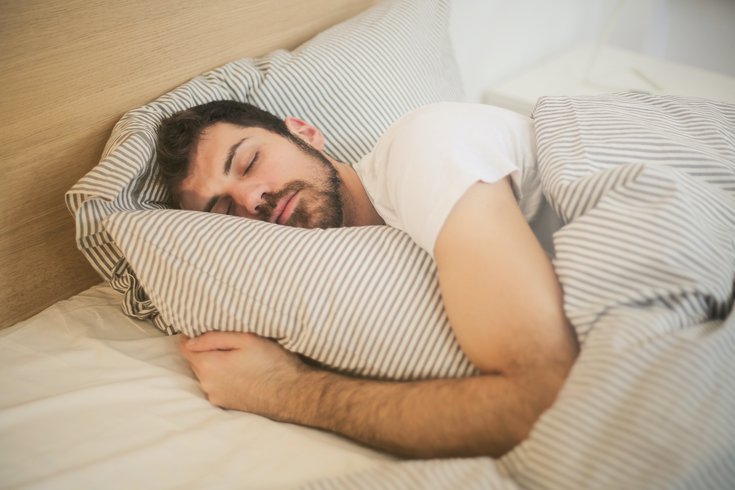
August 17, 2023
 Andrea Piacquadio/Pexels
Andrea Piacquadio/Pexels
Social jet lag, which occurs when a person's sleep schedule varies on weekdays compared to weekends, may lead to insomnia, fatigue, higher risk of obesity and issues with gut health.
After a long week of setting alarms to get up early for work, it may seem appealing to spend the weekend catching up on sleep or staying out late to socialize with friends. But if you find yourself feeling fatigued and dreading waking up at the usual time on Monday morning, it may be a sign that you're experiencing social jet lag.
Social jet lag happens when a person's sleep schedule varies during the week compared to the weekend, creating two separate sleep patterns. This mismatch can impact the body similarly to traditional jet lag. But unlike the fatigue experienced after traveling, which usually improves within a few days, social jet lag is chronic, experts say.
The term was coined by Till Roenneberg, a German researcher who was studying the differences in sleep patterns on workdays and free days. Roenneberg found that, even when people were getting the recommended eight hours of sleep each night, social jet lag had health consequences because it put their body's circadian rhythms out of sync.
"Just the way traveling from New York City to Los Angeles can sometimes wreak havoc on your circadian rhythm, so too can staying up late at the end of a stressful work week and sleeping in on weekends," Dr. Raj Dasgupta, an assistant professor of clinical medicine at the University of Southern California, told CNN. "By staying up late on Friday and Saturday nights and sleeping in both days afterward, you're essentially forcing your body into a different time zone."
Social jet lag is measured by the midpoint of sleep on weekends minus the midpoint of sleep on weekdays, according to the American Psychiatric Association. For example, a person sleeping from midnight to 8 a.m. on weekends (4 a.m. midpoint) and from 11 p.m. to 5 a.m. on weekdays (2 a.m. midpoint) would experience a two-hour social jet lag.
That can make it difficult for the body to know what time to go to sleep and what time to wake up, which can lead to insomnia, early waking, excessive sleepiness, daytime fatigue, difficulty concentrating and an overall sense of not feeling well, according to Children's Mercy Hospital in Kansas City.
A study published in the European Journal of Nutrition earlier this month found that even slight changes in a person's schedule can have a negative impact on gut health. Researchers found that microorganisms found in the guts of people with social jet lag were associated with poor health outcomes including obesity, inflammation, stroke risk and risk of cardiovascular disease.
Social jet lag has been linked to poor health, increased sleepiness, higher risk of heart disease, weight gain, decreased productivity and worse academic performance.
Some people are naturally predisposed to sleeping in or waking up early, often labeling themselves a "morning person" or "night owl." These are known as chronotypes, or the reflection of a person's individual circadian rhythm. Chronotypes are influenced by genetics, environmental factors and age.
Morning people often benefit from societal expectations around early rising, while night owls are more likely to develop social jet lag, according to the American Psychiatric Association. Research has indicated that night owls have an increased risk of developing mental illnesses, diabetes and obesity compared to morning people.
For those experiencing social jet lag, the cure is pretty simple — sticking to a regular sleep schedule can help keep the body's circadian rhythm on track and reduce the sleepiness, fatigue and insomnia associated with irregular sleep patterns.
"Physicians often tell people to think about their diet and exercise, but I think this offers an additional preventative strategy," Sierra Forbush, formerly a resident at the University of Arizona College of Medicine, told New Scientist in 2017. "It's not just about getting enough sleep, but getting regular sleep: Ideally you want to be going to bed and waking up at the same time every day of the week."
Resetting a sleep schedule begins by choosing a bedtime and a waking time that will be easy to stick to. For those who have trouble falling asleep early or staying asleep during the night, the Sleep Foundation recommends cutting down on screen time at night, getting regular exercise and limiting alcohol and caffeine.